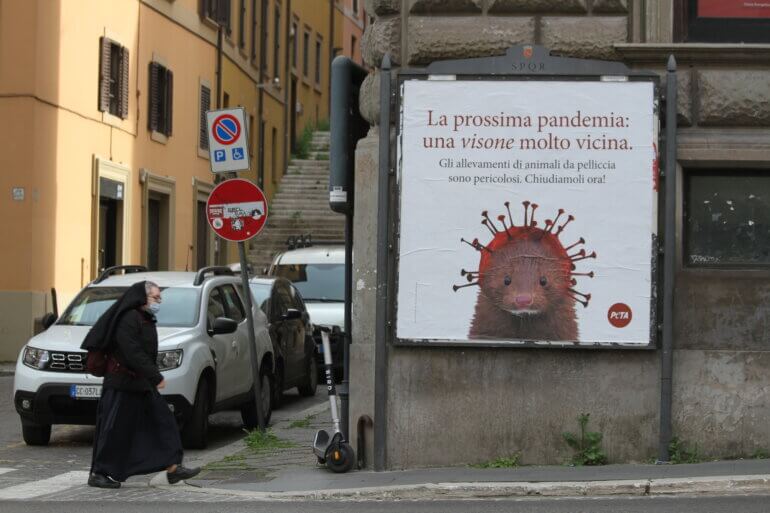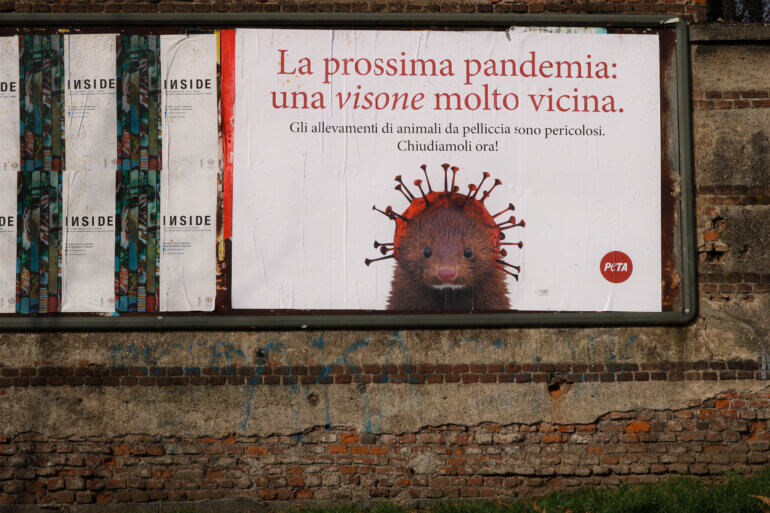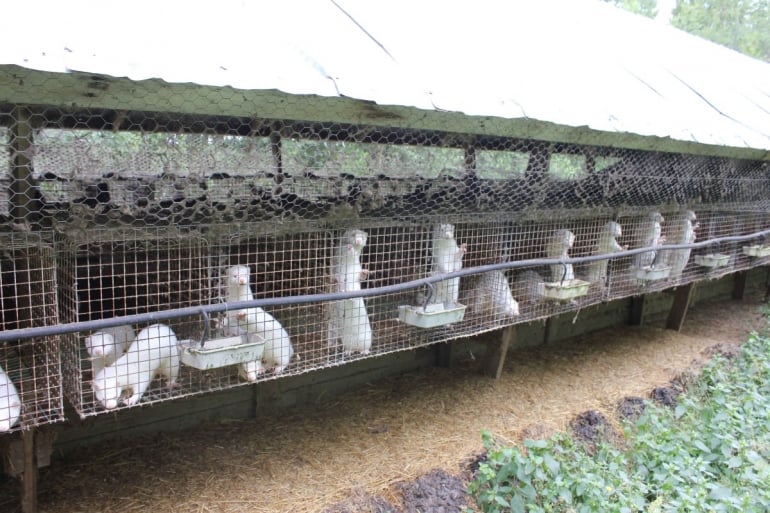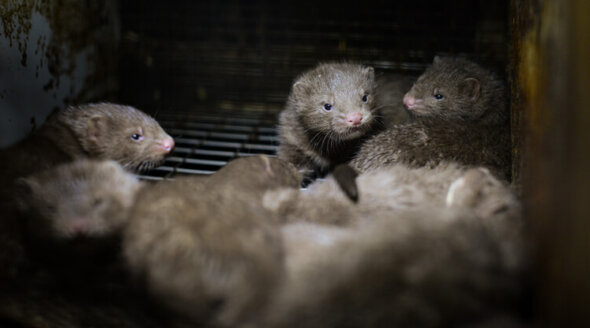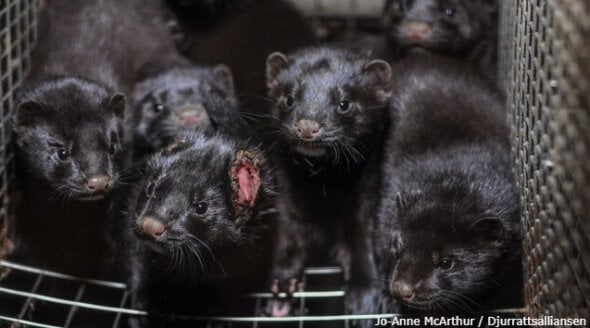PETA Billboards Call For End to Fur Farming in Italy and Denmark
Following COVID-19 outbreaks on fur farms in both countries, PETA has placed three billboards in Denmark and eleven billboards in Italy calling on governments to close fur farms for good. This week, famed Italian model and actor Elisabetta Canalis expressed her support for the campaign in an interview.
 Niels Vogensen
Niels Vogensen
Copenhagen, Denmark
Rome, Italy
The billboards warn, “The next pandemic is closer than you think. Fur farms are dangerous. Ban them now.” Last year, five mutations of the novel coronavirus were found in minks on Danish fur farms. One of them was feared to be resistant to vaccines, resulting in more than 17 million minks being gassed to death.
An outbreak of this strain could “devastating consequences” worldwide, according to experts.
Milan, Italy
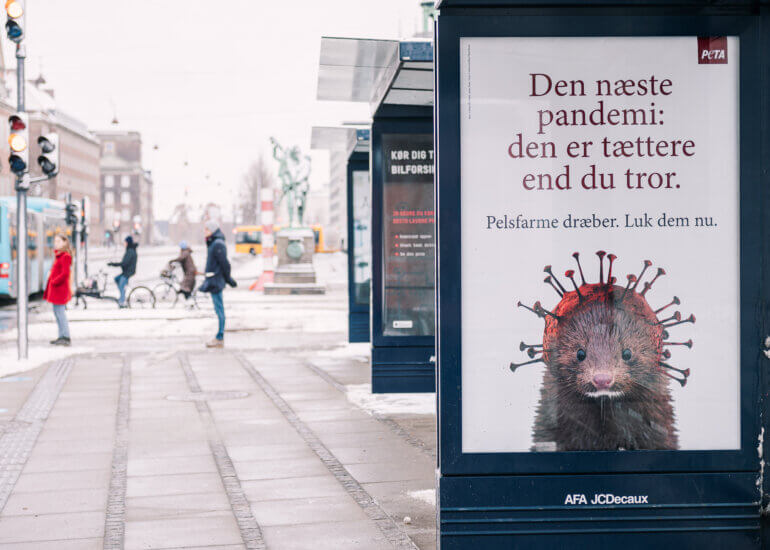
Copenhagen, Denmark
And Denmark is not alone – Italy, too, reported cases of COVID-19 in minks. As a result, the Italian government has ordered that all minks on fur farms where an animal has tested positive for the novel coronavirus be killed. It has also ordered a suspension on all mink farm activity until the end of February 2021.
But gassing minks and suspending mink fur farm operations does nothing besides delaying the inevitable and prolonging cruelty. These deadly places must be shut down permanently.
Fur Farms Are Breeding Grounds for Disease
Filthy fur farms packed with sick, stressed, and injured minks are breeding grounds for disease. The viruses that cause SARS and COVID-19 first infected humans who came into close contact with captive wildlife at live-animal markets – which represent a public health risk similar to that posed by fur farms.
The US Centers for Disease Control and Prevention warns that approximately 75% of recently emerged infectious diseases affecting humans originated in other animals.
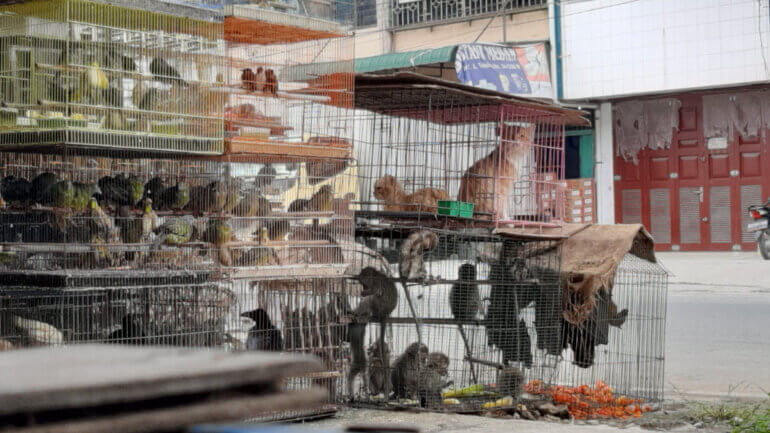
Wet market
Fur farm
As in the case of live-animal meat markets, on fur farms, minks and other animals killed for their skin are confined to cramped wire cages adjacent to one another, making it very easy for infectious diseases to spread through the exchange of urine, excrement, pus, and blood. Animals with infections, sores, and festering, open wounds caused by the wire flooring they stand on are a common sight.
Fur farmers and handlers are among those who most commonly suffer from the zoonotic bacterial disease tularaemia.
Fur Farming Is Cruel
Humans have no right to imprison minks in barren cages for their entire lives. Unable to engage in natural behaviour, they often go mad from the confinement, and some even self-mutilate, chewing on their own limbs or tails as a result of the constant psychological and physical torment.
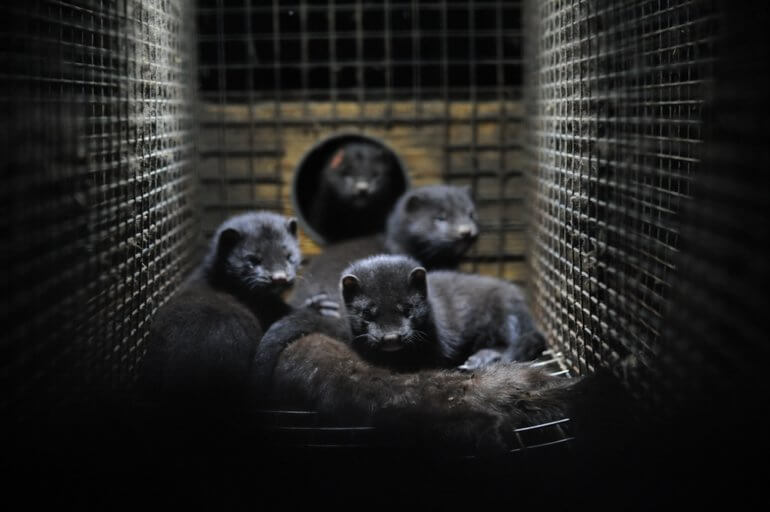
They’re killed in gruesome ways, including poisoning, gassing, and drowning, and may even be skinned alive.
What You Can Do
Around the globe, countries have taken decisive action to ban these cruel places. The Dutch parliament voted by an overwhelming majority to bring forward the implementation of a fur-farming ban in the country, and France and Poland are enacting legislation against mink farming.
Such bans are already in place in dozens of other countries, including Austria, the Czech Republic, Israel, and the UK.
It’s high time for Denmark and Italy to follow suit. Use your voice to help shut down the Danish and Italian fur industries:

